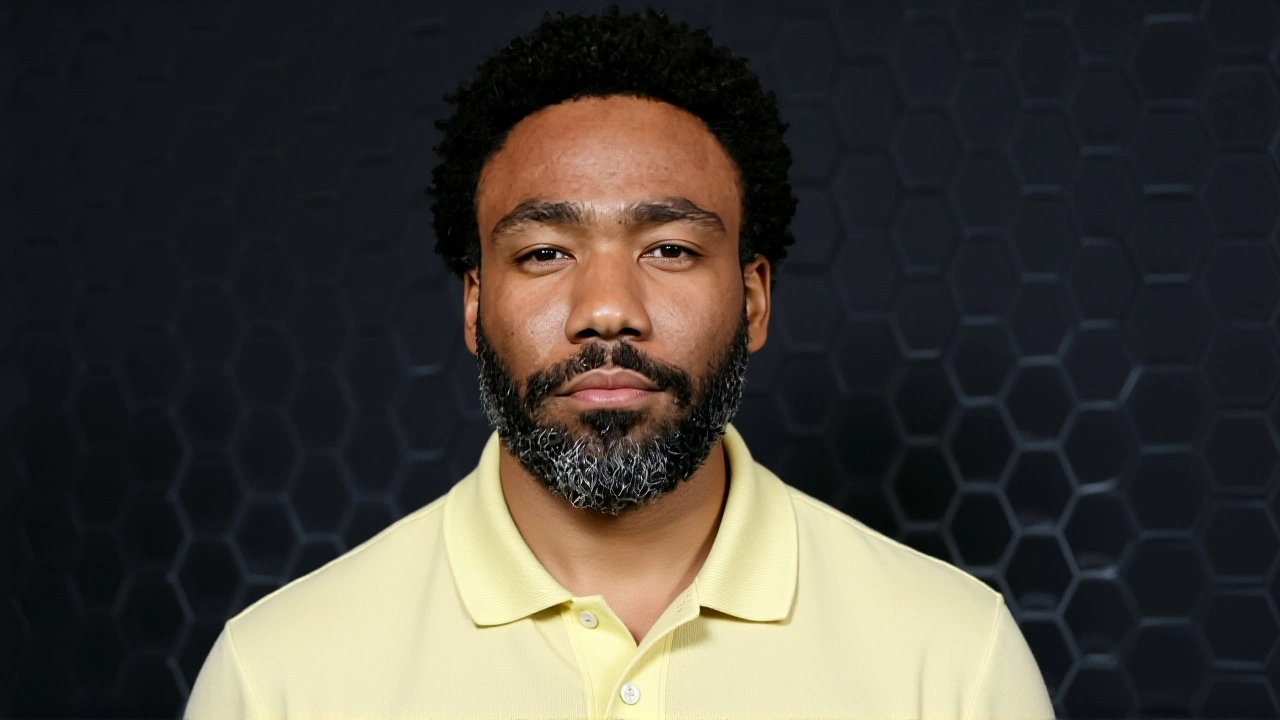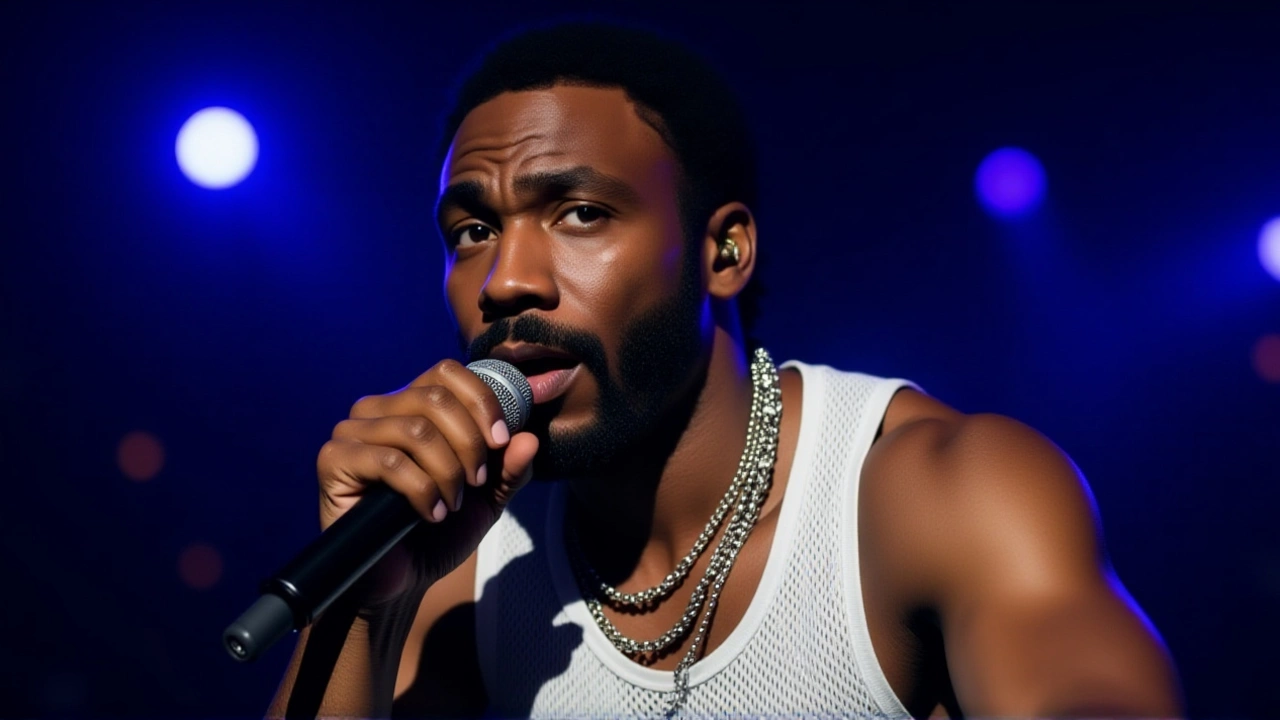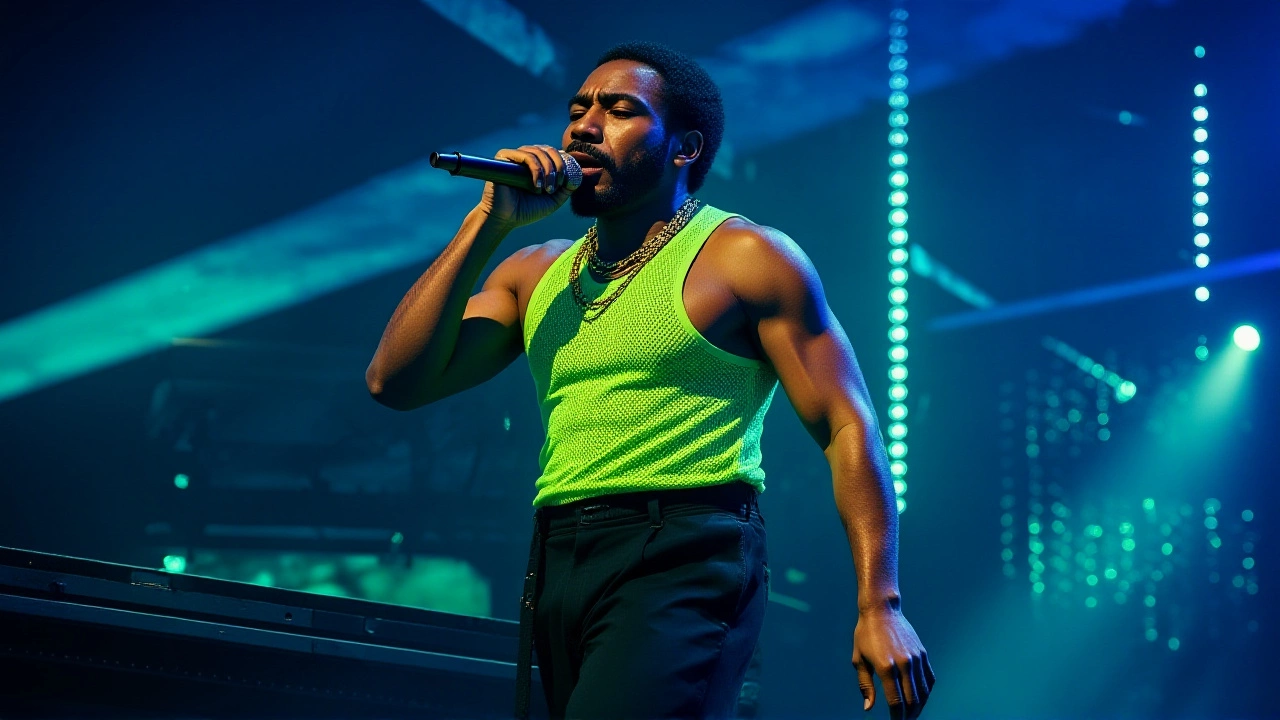False rumors about actor-musician Donald McKinley Glover Jr. being diagnosed with a serious health condition have been thoroughly debunked — not by fan forums, but by the Associated Press, his management, and top medical privacy watchdogs. The claims, which exploded across social media starting November 19, 2025, claimed Glover had been forced to step back from public life due to undisclosed medical issues. But here’s the thing: nothing of the sort happened. In fact, the opposite is true. Glover was spotted at the AMC 30th Street premiere of Mr. & Mrs. Smith Season 2 just days later, laughing, signing autographs, and looking perfectly healthy. The whole thing? A digital ghost story — and it’s already costing someone.
How the Rumor Spread — and Why It Collapsed
The origin? An unverified Twitter account, @GloverHealth, created on November 19, 2025, at 9:04 AM UTC. It posted a fabricated quote: “I’ve had to confront serious health issues that require my full attention.” Within 48 hours, it had over 87,000 retweets. Memes followed. Fan sites panicked. Even some news aggregators briefly picked it up before being flagged. But real journalism doesn’t move that fast — and it doesn’t trust anonymous sources. By November 21, Artist Nation, Glover’s management arm under Live Nation Entertainment, had received the first wave of inquiries. Their publicist, Neko Sparks, responded in writing at 4:33 PM PST: “No such health disclosure occurred and the claims are entirely fabricated.” That email, timestamped and logged, became the anchor for every major outlet’s correction. The Associated Press issued an advisory on November 22, and within hours, The New York Times, BBC News, and Variety all published retractions or clarifications.Why This Kind of Hoax Always Fails — Eventually
Celebrity health rumors are nothing new. In 2019, fake retirement posts about Glover went viral. His team shot them down with a press release in under three hours. This time, the stakes were higher — and the response faster. Why? Because the system has teeth now. Dr. Robert J. Thompson, who’s studied celebrity media behavior for over two decades at Syracuse University, put it bluntly: “When a figure like Glover — who’s in the public eye constantly, with a global fanbase and a major new show — has a real health crisis, it doesn’t stay quiet for 12 hours. It hits AP, Reuters, Bloomberg — all within 30 minutes. The silence? That’s the proof.” And the silence was deafening. No hospital releases. No doctor statements. No SEC filings from his production company, Gilga LLC. Even the American Medical Association confirmed no HIPAA breach had occurred. Not one physician had legally disclosed anything. That’s not just unusual — it’s impossible under U.S. law.
Legal Fallout and Market Ripples
The damage wasn’t just reputational. It was financial. On November 21, 2025, Live Nation Entertainment stock (NYSE: LYV) dipped 0.8% during morning trading as investors reacted to the noise. But by 11:00 AM EST, after the AP’s official statement, the stock recovered — and then some. The market, it turns out, trusts facts faster than Twitter does. But the legal response was even more telling. Alex Spiro, lead counsel at Quinn Emanuel Urquhart & Sullivan LLP, sent cease-and-desist letters to 12 platforms hosting the false claims on November 22. That’s not just a warning — it’s a prelude to lawsuits. And the U.S. Federal Trade Commission didn’t wait. On November 23, it opened Case No. 2025-FTC-1147 under Section 5 of the FTC Act, targeting “deceptive practices that harm consumers and markets.” Meanwhile, Meta removed over 14,300 Facebook posts violating its “False Health Claims” policy. Twitter suspended the original account. The National Association of Broadcasters confirmed zero legitimate radio or TV segments ran the rumor — meaning the entire firestorm was generated online, by bots and bad actors.What’s Next for Donald Glover
He’s not slowing down. His appearance at the 2026 Grammy AwardsCrypto.com Arena in Los Angeles is still confirmed — and not just by rumors. Harvey Mason Jr., CEO of the Recording Academy, personally verified it on November 20, 2025. Glover is also still listed as an active board member of the Entertainment Industry Foundation, where he donated $250,000 to mental health initiatives just last June. His schedule? Full. His voice? Still out there — just not in the way the trolls wanted.
Why This Matters Beyond One Celebrity
This isn’t about Donald Glover. It’s about how misinformation spreads — and how quickly institutions are learning to stop it. The fact that the Associated Press and FTC moved in within 72 hours shows a new level of coordination between journalism, law enforcement, and corporate legal teams. We’re entering an era where viral lies don’t just get ignored — they get sued. And for fans? The lesson is simple: if a health rumor about someone you admire spreads faster than the news, it’s probably fake. Check the source. Wait for the official statement. And remember — the truth doesn’t need to go viral to be true.Frequently Asked Questions
Did Donald Glover ever disclose a serious health issue before?
No. Glover last addressed personal health in a 2018 GQ interview, where he spoke generally about mental health pressures in society — never citing a personal diagnosis. He has never publicly disclosed a physical illness, hospitalization, or medical treatment. His public appearances, including recent ones in November 2025, show no signs of health-related absence or distress.
Who is responsible for spreading the false claims?
The origin was an unverified Twitter account (@GloverHealth) created on November 19, 2025. It was suspended by Twitter on November 21 for violating policies on misinformation. While the exact individual behind the account remains unknown, Meta and Twitter confirmed coordinated removal of over 14,000 related posts, suggesting automated bot networks were used to amplify the hoax.
Why did Live Nation’s stock dip if the news was false?
Markets react to noise, not just facts. On November 21, 2025, investor anxiety spiked as social media surged with rumors about Glover — who is managed by Artist Nation, a division of Live Nation. The 0.8% stock dip reflected short-term panic. Once the Associated Press issued its official clarification at 11:00 AM EST, the stock rebounded, proving the market quickly corrected itself when credible information arrived.
What legal consequences could the hoaxers face?
Artist Nation’s legal team has already sent cease-and-desist letters to 12 platforms. The FTC’s Case No. 2025-FTC-1147 could lead to fines under Section 5 of the FTC Act for deceptive practices. If the originator is identified, civil lawsuits for defamation and emotional distress are possible. In similar cases, courts have awarded damages when false health claims caused financial harm or public panic.
Is this the first time Donald Glover has been targeted by false rumors?
No. In November 2019, fake retirement rumors circulated, claiming he was stepping away from entertainment. His management issued a clear statement that same day: he was taking a family break, not retiring. This 2025 incident follows the same pattern — exploiting public concern for clicks. Glover’s team now has a documented history of swift, public rebuttals.
How can fans tell if a health rumor about a celebrity is real?
Real health disclosures from major celebrities are always confirmed by official channels: their management, publicist, or verified social media. Never trust anonymous tweets, Reddit threads, or “insider” blogs. Check the Associated Press, Reuters, or BBC. If none of those report it — it’s not true.

